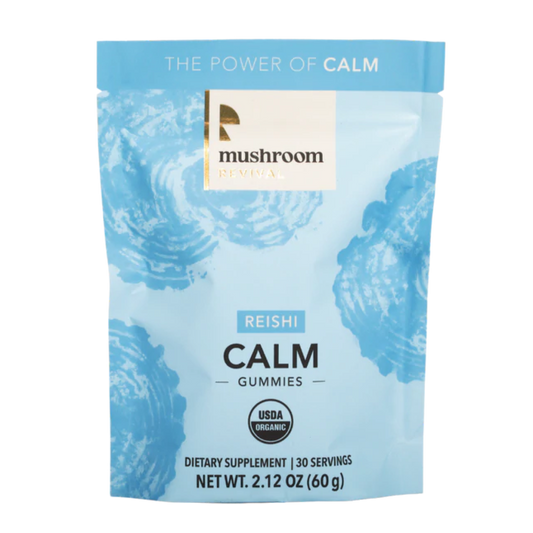Suing the DEA for Access to Psilocybin
Psilocybin as a Right to Try Drug for Terminal Patients
A Seattle-based doctor, Dr. Sunil Aggarwal, has filed a lawsuit against the DEA for denying him permission to use psilocybin therapy in his palliative care.
Podcast Topics
- Psilocybin psychotherapy for terminal patients
- Integrative approaches in palliative care and why practitioners are reaching for psychedelics
- Ketamine psychotherapy
- Legal stance on psilocybin in the United States as of March 2021
- The Right to Try Act — what it means, who and what is eligible, and a brief history of its impact
- A history of lawsuits against the DEA, specifically cannabis
Dr. Sunil Aggarwal and Lawyer Kathryn Tucker Sue the DEA
If you are a terminal patient or a recovering terminal patient, the Right to Try law states that you have access to try investigational phase one drugs such as psilocybin. But what would you do if the DEA tries to take that privilege away from you and even threatens you though it is your right by law?
Dr. Sunil Aggarwal recently petitioned for the legal therapeutic use of psilocybin to help treat symptoms for his patient, Erinn Baldeschwiler. However, they were denied by the DEA even though Erinn is suffering from an advanced stage of breast cancer. Erinn has been given two years to live. She’s only 49 years old. In response, Dr. Aggarwal immediately put the denial in a case to the US Courts of Appeals.
Moreover, Dr. Aggarwal and his lawyer, Kathryn Tucker, argue that the DEA is violating the humanitarian Right to Try for terminally ill patients. Most of us aren't lawyers, but we can visit the basic language of the act to see for ourselves why the lawsuit is legitimate. Taken verbatim from the FDA's website, the Right to Try Act states:
"The Right to Try Act permits/allows eligible patients to have access to eligible investigational drugs."
Eligible Patients Who…
- Have been diagnosed with a life-threatening disease or condition
- Exhausted the approved treatment options, and is unable to participate in a clinical trial involving the eligible investigational drug
- Can provide written consent for the investigational drug to the respective physician
Eligible Substances or Investigational Drugs Have…
- Completed a Phase 1 Clinical Trial
- Not been approved or licensed by the FDA
- An application that has been submitted to the FDA for clinical trial intended to form a claim of effectiveness AND is the subject of an active investigational drug application with the FDA
- Not been discontinued or put on hold with the FDA
“[T]here are pockets within the nation where psilocybin is not criminalized and you could potentially use it for therapeutic uses, but for the majority of the US, this is highly illegal.”
— Lera, Mushroom Revival
The lawsuit is against the DEA for denying patients the Right to Try psilocybin even though there is a written law that should allow it. Winning this case is a crucial step to relieving many patients from mental, emotional, and physical suffering. In conclusion, the DEA is violating an article and making it unfair for patients who are terminally ill and/or recovering from terminal illnesses to find relief. It is their right to use psychedelic mushrooms for therapeutic uses.
(Pictured Top to Bottom: Dr. Sunil Aggarwal, Erinn Baldeschwiler, Kathryn Tucker)
Erinn Baldeschwiler’s Story
Erinn is a wise, open-minded, and caring person. After getting diagnosed with an advanced stage of breast cancer, she decided that she wanted to utilize natural medicines alongside modern ones. She thinks that traditional palliative care is designed to only address physical pain. On top of this, prescription drugs can be “scary,” “addictive,” and “harmful.” There isn’t a lot of room for physical-mental-emotional healing in that sphere.
“[T]here’s a lot of things in life that can really throw us off base and I can tell you that having a diagnosis of death is one of them…”
— Erinn Baldeschwiler
As a cannabis user for anxiety relief and, in the past, a recreational mushroom user, her viewpoint on natural remedies are that they are “healing” and “relieving.” She’s found great relief through natural modalities. Yet, she is still utilizing modern medicines such as immunotherapy and chemotherapy to fight advanced stages of cancer. But when it comes to facing the heightened symptoms of anxiety and depression with a hastened death, psilocybin seems so, so promising.
As far as Dr. Aggarwal and his team are concerned, his patient, Erinn, and the drug, psilocybin, check all the boxes for legal therapeutic use. She is an Eligible Patient by the requirements listed above. Not only that, but she deserves the Right to Try for her emotional and spiritual well-being. Moreover, she deserves to have the psychedelic drug administered in a safe environment with Dr. Aggarwal without feeling like she’s in the ”back rooms'' or “shadows.”
“It’s really important that my mindset matches the setting.”— Erinn Baldeschwiler
When it comes to psilocybin therapy, “set and setting” is of utmost importance. If there were to be any hindrance about the legality of the drug and the possibility of facing charges or even jail time while undergoing the process — it could be a traumatic experience. That’s why the legality of psilocybin is so important in the therapeutic aspects. The patients that could use the medical benefits of the mushroom would improve in health if it were to be administered in the right environment.
Beforehand, Erinn was specifically seeking a medical professional that is skilled in palliative care. She wanted someone who could “bridge the physical and emotional elements that terminal patients are prone to struggle with.” She desired to participate in her Right to Try within a safe environment alongside a doctor, such as Dr. Aggarwal, as well as a psychotherapist to make sure everything goes well. To her, it’s critically vital to approach psilocybin as a medicine. The importance of knowing what kind of strain and how pure it is as well as the dosage — all coming from a professional who has knowledge and experience of the application — is crucial to Erinn. Simply put, the psychedelic must be administered in a professional way just as the law states.
And that’s exactly what Dr. Aggarwal can provide. He is knowledgeable about “allopathic and western methods… [and] alternative methods and substances.” He also takes into conscious consideration the “cultural roots of the substances” he utilizes in his practice. With 40 years of research with patients like Erinn, Dr. Aggarwal has a lot of experience and is respected. Furthermore, he believes that patients “should be able to try anything that we have deemed as safe… because they don’t have the luxury of time.”
“[Terminally ill patients] don’t have the luxury of time.”
— Dr. Sunil Aggarwal
Many terminally ill patients seriously struggle with feelings of hopelessness and negative thoughts when it comes to a hastened death. There comes major trauma and a huge sense of disconnection when uncertainty with a diagnosis is present. Sadly, western medicine does not have good therapies to help with the deep emotional and mental disturbances that come with terminal illnesses other than prescribing a counselor and antidepressants. So, psilocybin is the light at the end of the tunnel to help patients on the verge of death from suffering until the end. However, to provide this for the patients — it all depends on where the lawsuit stands.
Where the Lawsuit Stands
Dr. Aggarwal and his clinic, the Advanced Integrative Medical Science (AIMS) Institute, wrote to the DEA for guidance on how to proceed with using a Schedule I drug under the Right to Try Act. Instead of the DEA responding with guidance, the team's petition was rejected on February 12th after submission a month prior.
“I just felt like this is the same old pattern that the DEA has been in since they were founded in the 70s by Richard Nixon, which was really this politically politicized institution that tried to shut down research and medical progress with cannabis and psychedelics.”— Dr. Sunil Aggarwal
This unacceptable response led to a lawsuit filed on March 8th with the help of their lawyer, Kathryn Tucker, who has extensive experience in psychedelic legislation. Kathryn is the Co-Chair of the Psychedelic Practice at the Emerge Law Group. She has also worked with the Nowak Society, a 501(c)3 in Colorado, advocating for public health, with a focal point on psychedelics. And their team has set up a Right to Try Advocacy Fund. At the time of recording this podcast, the team felt confident about winning their case.
Supporting the Lawsuit and the Right to Try Law
It would be a huge milestone if they win the lawsuit. Luckily, there are ways to support the problematic legislation around psilocybin. Donate to the Nowak Society and their Right to Try Advocacy Fund to help the team for the public good. Your support will help patients to have safe and pure pathways to psilocybin to relieve them of their great suffering.
“A win… could be the administrative catalyst for creating more spaces nationwide for other terminal patients seeking psilocybin care.”
— Alex, Mushroom Revival
To hear more on the case, click the podcast player above where we feature input from Dr. Sunil Aggarwal, his patient Erinn Baldeschwiler, and their lawyer, Kathryn Tucker.
Podcast Show Notes & Works Cited
- Donate to the Nowak Society: https://www.thenowaksociety.org/projects
- Emerge Law Group: https://emergelawgroup.com/2017/
- FDA's Right to Try Act: https://fda.gov/RTTAct
- Cannabis' legal history: https://thehia.org/Hemp-Legal-HIA-vs-DEA
- Dr. Aggarwal's website: http://www.cannabinologist.org/
- AIMS Institute: https://www.aimsinstitute.net/
Show Notes
Donate to the Nowak Society: https://www.thenowaksociety.org/projects
Emerge Law Group: https://emergelawgroup.com/2017/
FDA's Right to Try Act: https://fda.gov/RTTAct
Cannabis' legal history: https://thehia.org/Hemp-Legal-HIA-vs-DEA
Dr. Aggarwal's website: http://www.cannabinologist.org/
AIMS Institute: https://www.aimsinstitute.net/





























